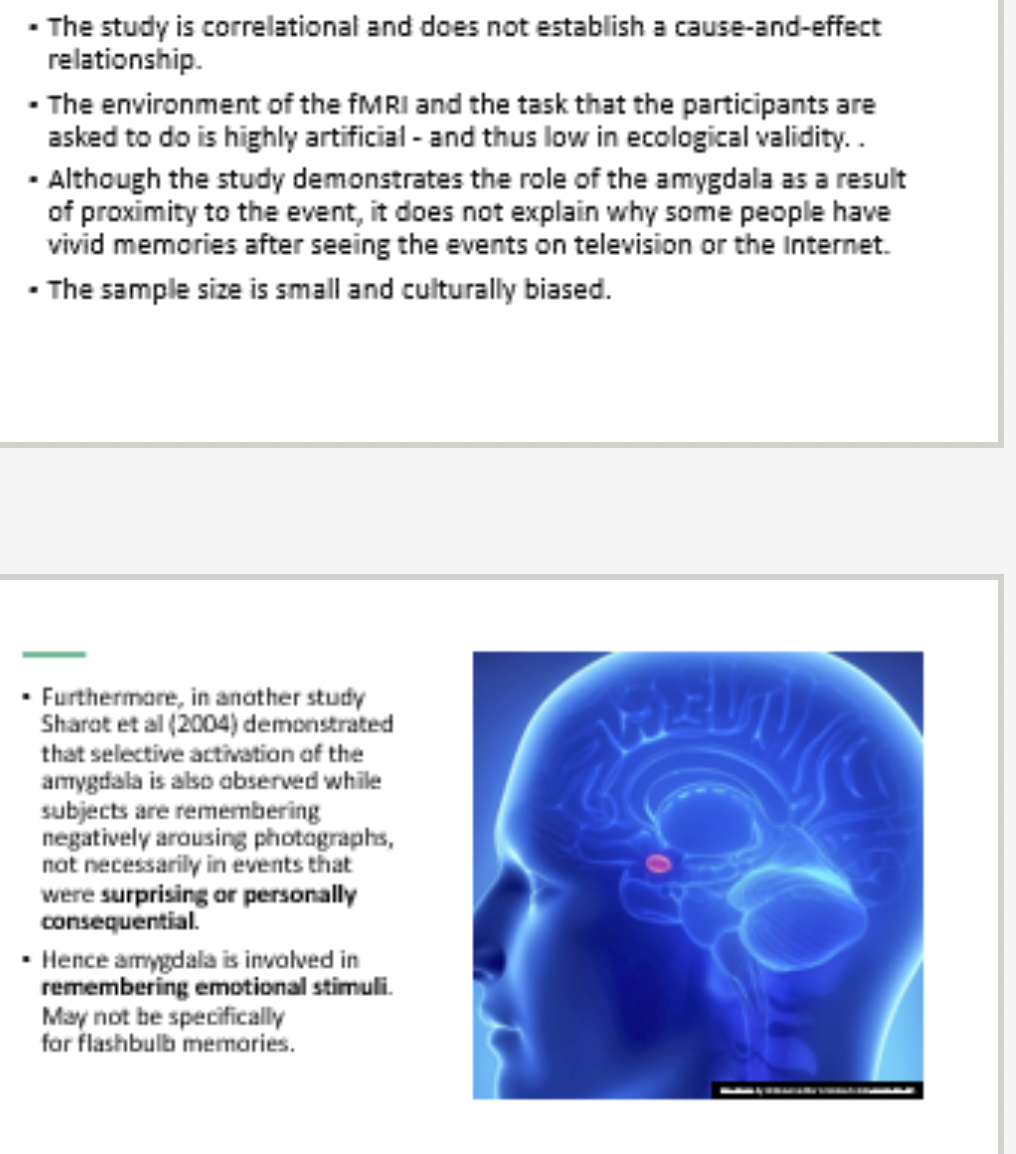Sharot et al 2007-Emotion and Cognition
1/7
There's no tags or description
Looks like no tags are added yet.
Name | Mastery | Learn | Test | Matching | Spaced |
|---|
No study sessions yet.
8 Terms
aim
the aim of this study was to determine the potential role of biological factors on flashbulb memories
participants
24 participants
method
participants were placed in an fMRI and were asked to retrieve 60 autobiographical memories based on the word cues presented on a screen wither ‘summer’ or ‘september’
these indicated whether the autobiographical memory was from 9/11 or the sumbber before (june-august 2001)
particiapants brain activity was observed wule they recalled the events the personal memories erved a s a baseline of brain activity for evaluating the nature of 9/11 memories
participants were asked to rate their memories for vividness, detail, confidence in accuracy and arousal.
results
downtown mahattan participants exhibited selective activation of the amygdala as they recalled events from 9/11, but not while they recalled control events: 83% of participants in this group showed higher activation in the left amygdala during 9/11 trials than summer trials
Midtown participants: 40% exhibited selective activation of the left amygdala.
There was no difference accross groups for summer trials
selective activation correlated with the proximity of the participants to world trade centre.
conclusion
these results suggest that close personal experience may be critical in engaging the neural mechanisms that produce vivid memories characteristic of flashbulb memories
Evaluation
the study is correlational so no cause and effect.
fMRI highly artifical and thus low ecological validity

Research method- quasi experiment
A quasi-experiment is a research design used in psychology that seeks to establish a correlation relationship between an independent variable (IV) and a dependent variable (DV) without the random assignment of participants to groups. Grouping may be due to predefined characteristics. In quasi-experiments, the independent variable is naturally occurring and not manipulated by the researcher, which differentiates it from controlled experiments.
Ethics- informed consent
The study emphasized the importance of informed consent, ensuring that participants understood their rights and the nature of the research before taking part. Informed consent is crucial in preserving participants' privacy and autonomy, allowing them to make informed decisions about their involvement in the study. By ensuring that participants were compensated and aware of the study's goals, Sharot et al. contributed to the broader discourse on ethical standards in psychological research